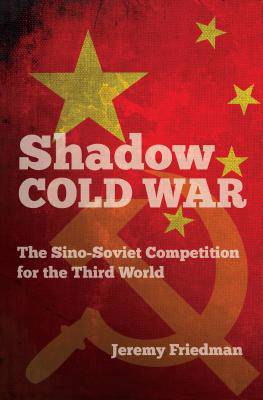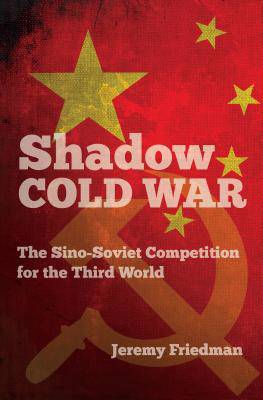
- Afhalen na 1 uur in een winkel met voorraad
- Gratis thuislevering in België vanaf € 30
- Ruim aanbod met 7 miljoen producten
- Afhalen na 1 uur in een winkel met voorraad
- Gratis thuislevering in België vanaf € 30
- Ruim aanbod met 7 miljoen producten
Omschrijving
The conflict between the United States and the Soviet Union during the Cold War has long been understood in a global context, but Jeremy Friedman's Shadow Cold War delves deeper into the era to examine the competition between the Soviet Union and the People's Republic of China for the leadership of the world revolution. When a world of newly independent states emerged from decolonization desperately poor and politically disorganized, Moscow and Beijing turned their focus to attracting these new entities, setting the stage for Sino-Soviet competition.
Based on archival research from ten countries, including new materials from Russia and China, many no longer accessible to researchers, this book examines how China sought to mobilize Asia, Africa, and Latin America to seize the revolutionary mantle from the Soviet Union. The Soviet Union adapted to win it back, transforming the nature of socialist revolution in the process. This groundbreaking book is the first to explore the significance of this second Cold War that China and the Soviet Union fought in the shadow of the capitalist-communist clash.
Specificaties
Betrokkenen
- Auteur(s):
- Uitgeverij:
Inhoud
- Aantal bladzijden:
- 304
- Taal:
- Engels
- Reeks:
Eigenschappen
- Productcode (EAN):
- 9781469645520
- Verschijningsdatum:
- 1/08/2018
- Uitvoering:
- Paperback
- Formaat:
- Trade paperback (VS)
- Afmetingen:
- 197 mm x 241 mm
- Gewicht:
- 444 g

Alleen bij Standaard Boekhandel
Beoordelingen
We publiceren alleen reviews die voldoen aan de voorwaarden voor reviews. Bekijk onze voorwaarden voor reviews.








